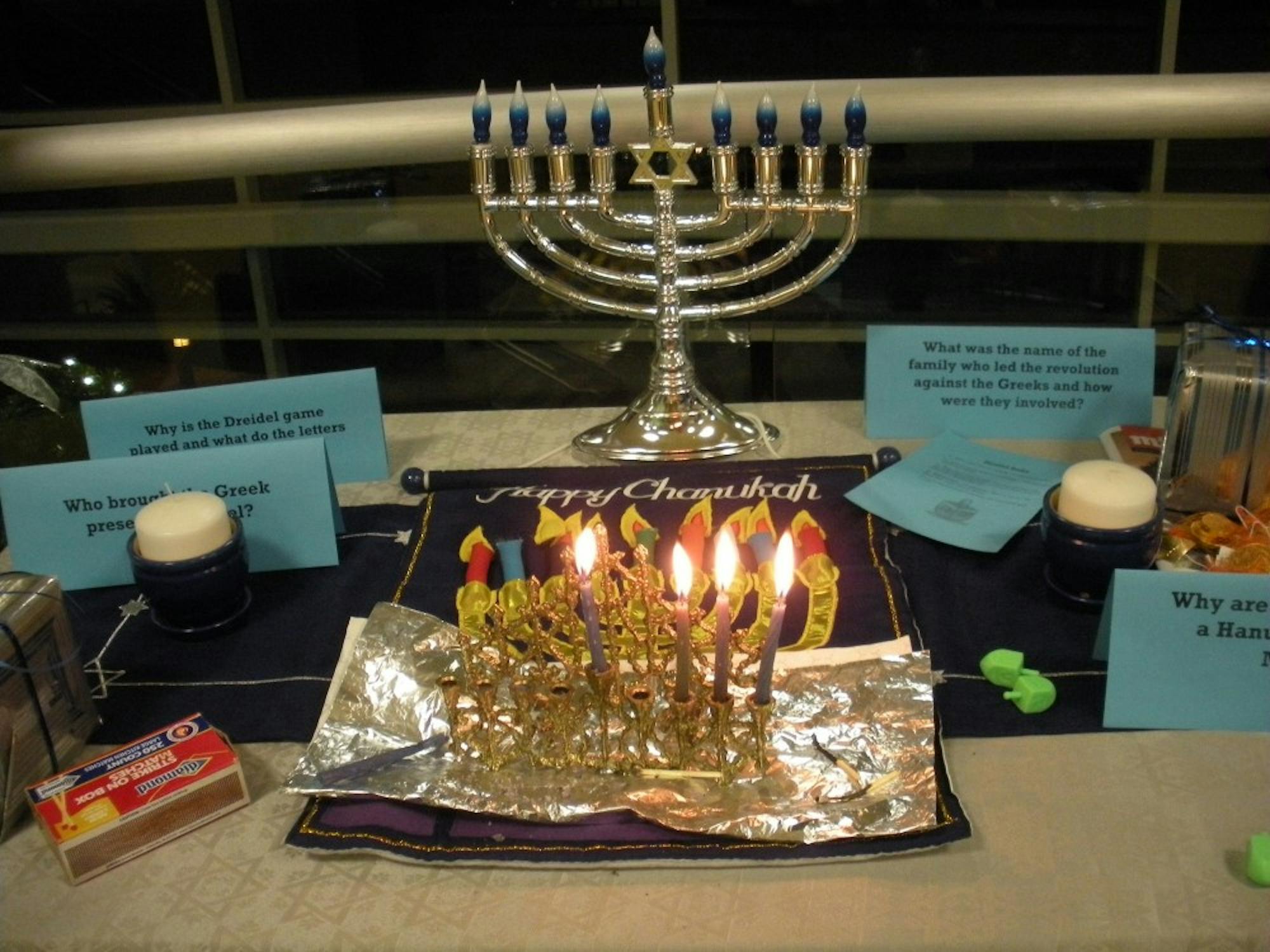With the bombardment of Christmas commercials, Christmas songs, Christmas TV specials and Christmas movies this month, it’s easy to forget that many, many people in America do not actually celebrate the holiday. In fact, there are millions of people celebrating very different religious holidays this month, one of which is happening this week—the eight-day Jewish holiday, Hanukkah.
Hanukkah, also known as the Festival of Lights, started Saturday and will be celebrated through Sunday night. Each night of Hanukkah consists of a menorah lighting ceremony along with feasts, celebrations and an overall joyous time. The holiday has been celebrated for thousands of years.
The history of Hanukkah is very rich and detailed, dating back to the second century B.C.E. There are aspects to the story both religious and political, but to make a long story short, Jewish people living in Judea found that when King Antiochus IV came to power, their religious freedom was in danger and revolted.
Not as tolerant as his predecessor, Antiocus III, the Syrian-Greek leader attempted to outlaw Jewish practices and force Jews into assimilating and accepting Greek values—they were even expelled from the Holy Temple in Jerusalem, which was then desecrated and used for Greek religious practices.
The Hasmonean family, also known as the Macabees (which translates to English as “hammer”), were frustrated that they had been kicked out of their temple and led a revolt. Though they were a much smaller force, militarily, the Macabees won and the Jews took back their temple.
It took them a week to cleanse and rebuild, before rededicating the temple as a Jewish holy place. While not all believe in this part of the story, some say a miracle occurred that week. They only had one day’s worth of sacred oil to burn in the menorah and provide the temple with light—yet the oil burned for eight days, the entire time it took to restore the temple and replenish the sacred oil.
Afterwards, it was decided that a celebration would be held each year to commemorate the revolution.
“There are two aspects to the celebration of Hanukkah,” said Clara Silver, executive director of Hillel, the Jewish student organization at Eastern Michigan University.
Silver explained the reason, duration and rituals for the holiday.
“One is the military victory, so we celebrate the day that they took back the temple. The second is because it took a week to cleanse the temple, and the main light they had was the seven-branch menorah,” Silver said.
Hanukkah is a very symbolic holiday. Each night, a candle is lit on a menorah to represent each of the eight days that it took to restore the temple. By the end of the week, the menorah is fully lit and beautiful, as was the temple after its cleansing.
Foods such as latkes (potato pancakes) and sufganiyot (jelly filled donuts) are eaten during Hanukkah. They are fried, representing the sacred oil, according to Alex Hecht, engagement fellow at Hillel.
Another popular Hanukkah symbol is the dreidel, a four-sided spinning top.
“Syrian-Greeks outlawed the reading of the Torah, so Jews would use the spinning-top to make it look like they were playing a game, instead of reading,” Hecht said.
In modern celebrations of Hanukkah, children often use the dreidel to play a game where they gamble with chocolate coins or pennies. The dreidel has a letter on each of its four sides to represent the Hebrew phrase, “Nes Gadol Haya Sham.”
“It means ‘a great miracle happened there,’” Silver said.
Since Hanukkah happened to fall during a week of regular classes and the beginning of exams this year, students are able to celebrate on campus. Each night at 6 p.m. a menorah lighting ceremony is held in the Student Center. Hillel also has events scheduled throughout the week at their office at 965 Washtenaw Ave. in Ypsilanti.
On Thursday, Hillel will be hosting a Donuts and Dreidel event where students can eat sufganiyot and play the dreidel game. On Friday they are having a potato pancake dinner, or Latke Shabbat. You do not have to be Jewish or celebrate Hanukkah to attend these events.
“This year students are really able to celebrate together, since Hanukkah is all during a week of classes, which is a really cool experience,” Silver said.
Overall, the celebration is to commemorate Jewish pride along with religious freedom and tolerance for different beliefs.
“A lot of people, especially in college, are afraid to be proud of who they are in a public way and that’s what Hanukkah is about,” Hecht said. “It’s about celebrating diversity.”










